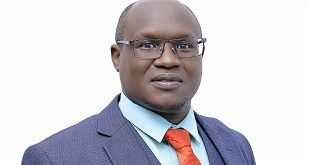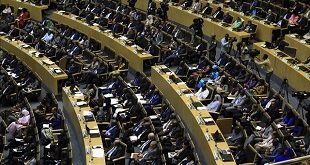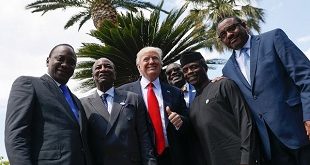
By Andrew M. Mwenda
Our continent needs to focus on its positive attributes and use those to inspire future generations
The definitive clash of wills during the Second World War that paved the way for the defeat of Nazi Germany was the battle of Stalingrad. Soviet leader Josef Stalin had ordered the Red Army to fight to the last man to stop the Germans from taking the city which bore his name. Any retreating soldier would be summarily shot. He sent in Nikita Khrushchev as the political commissar to enforce the order. Khrushchev implemented this order with unparalleled harshness. Propaganda stories in newspapers, television, and motion pictures showed scores of retreating troops being shot.
Many soviet soldiers fought desperately for the motherland but many others were giving up. Harsh punishment was not working as expected. One day, a very junior officer (perhaps out of naivety) told Khrushchev that harsh punishment for desertion (a negative incentive) was [maybe] necessary in certain cases. But he said it was not sufficient to win battle. In fact, he added, it was much more important to motivate troops with stories of soviet heroism.
“Let us not show our troops their failures but achievements,” the junior officer said, “Let us show them their heroes, not their villains. We must get stories of our soldiers’ heroism and spread them to inspire others to do great things as well. If we don’t have heroes, let us create them to inspire our men and women.”
Khrushchev embraced this advice. Soon, soviet media stopped showing images of deserting soldiers being shot for cowardice. They began showing images of courageous men and women of the Red Army destroying German tanks and shooting down German planes. Within a month, the tide was turning against Germany. Stalingrad turned into Adolf Hitler’s Waterloo.
This story of positive encouragement dominates the histories of nearly every successful individual, tribe, organisation, state and empire that I have read. It is the theme of Greek mythology (e.g. Troy), Roman history, Chinese poetry, Persian music etc.It is also the theme of African folklore. The colonial conquest of Africa was written by the conquerors in their own self-praise. Every society builds its own myths and heroes to inspire future generations. It is only in contemporary Africa that I see elites writing a history of condemnation that leaves future generations with nothing to inspire them.
It is true that fear of negative consequences and other negative incentives like harsh criticism are also necessary to wake people up and avoid collapse into complacency. But they must be seen as secondary, not primary to inspiring success. Most successful individuals had parents who inspired their confidence by always showing them their greatness, not their failures. This does not mean you don’t criticise your kids for their weaknesses. Rather it means that criticism must take less of your communication.
Africa is saddled with so much criticism that it is almost impossible to inspire young generations. We are one sided in our criticism of African people, society and leaders – in politics, civil service, military, religion, business, professions etc. Rarely does one read anything positive about our societies. We despise our business leaders, so the state supports “foreign investors.” It is easy for a “foreign investor” to meet a president of an African country and get land or tax breaks in Africa than a national investor.
Nations and peoples that praise themselves do not focus on strength because they have no weaknesses. They recognise that seeing one’s strength is the most effective instrument of inspiration. Behind every successful nation, religion, organisation or business is a myth about the greatness of its vision, its leaders (in business, politics, religion and the professions), citizens, employees, and members.
Africa has heroes: Kwame Nkrumah, Thomas Sankara, Patrice Lumumba, Gamal Nasser, Amilcar Cabral, Samora Machel, Julius Nyerere, Nelson Mandela etc. We have Wole Soyinka, Chinua Achebe, Mongo Beti, Okot P’Bitek, Ngugi wa Thiongo, Alechi Amadi and David Rubadiri. And we have many heroes in business, sports, music, art, philosophy and science. And this is not to say that these men (and women) were perfect. But their stories are what will inspire Africa’s young generation.
When I read Martin Maradeth’s book, The State of Africa, he argues that Nkrumah was mad, Lumumba was a demented psychopath, Sankara a thug, Nyerere an autocratic. The only leader he praised was Mandela. Is it a coincidence that the beneficiaries of Mandela’s magnanimity were his cousins? All history is purposeful. Clearly Maredeth was writing a history tailored for a certain purpose. So each time an African refers me to Maradeth’s book as a great read, I sit in silent admiration at the success of the colonial project – the colonisation of our minds. Robert Mugabe was a hero of Western media as he massacred Ndebeles. He became a villain when he dispossessed white farmers. Media presentations are also purposeful.
Americans talk of Jeffersonian democracy. But Thomas Jefferson was president of a country, which was mass exterminating the Native American population, where the franchise was restricted to a few propertied white males and it enslaved its black population (and he owned slaves and raped one, Sally Hemings, with whom he fathered children). Jeffersonian democracy is therefore another myth that keeps the heads of Americans high, giving them a sense of high morality and self-confidence.
African elites are obsessed with worship of the West because we have ideal illusions of it. None of the Western democracies has achieved the ideal that liberal democracy promises, even after 200 years of its evolution. Change in the West has been slow, progress often coming in a zigzag fashion. But this ideal illusion of Western society leads some of us to hate ourselves and see everything about our societies as wrong. Our political leaders see our citizens as incompetent. So they privilege “foreign investors” over nationals. They listen to IMF and World Bank `experts’ instead of their citizens.
The citizens also think our political leaders are incompetent and evil. So we prefer the International Criminal Court, IMF, and World Bank to defend our interests. We cheer a Tony Blair, a George Bush or a Barack Obama when he acts as headman ordering our political leaders around or send them to ICC. We believe our salvation can only come from the beneficence of the West and not our efforts. If Africa is to change for the better, it has to be proud of itself, to believe in its capacity to engineer her own progress. No one will change Africa but Africans. For that, Africans must believe in themselves.
amwenda@independent.co.ug
 The Independent Uganda: You get the Truth we Pay the Price
The Independent Uganda: You get the Truth we Pay the Price



Wisdom will kill you